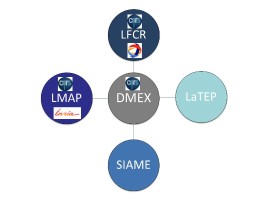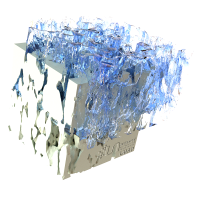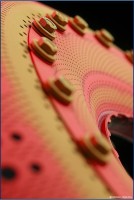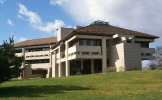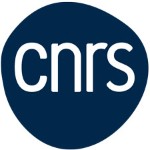Multidisciplinary Institute for Applied ResearchPresentation
The IPRA Research Federation (FR CNRS-UPPA 2952) gathers the multidisciplinary skills in mathematics, engineering sciences and geosciences of five research units:
• Laboratory of Complex Fluids and their Reservoirs (LFCR),
• Laboratory of Mathematics and their Applications of Pau (LMAP),
• Laboratory for Applied Sciences in Mechanics and Electrical engineering (SIAME),
• Laboratory of Thermal Engineering, Energy and Processes (LaTEP ),
• DMEX Centre for X-ray Imaging.
IPRA is a a member of:
• the competitiveness cluster Avenia , which brings together a unique research potential in France in the geosciences sector;
• the Carnot Institute ISIFoR , which aims to support the development of partnership research in the field of sustainable engineering of geo-resources.
Key Numbers
-
310 people (among which 160 permanent members)
-
30 PhD thesis defenses / year
-
200 publications / year
-
5 patents / year
-
1 Joint Industrial Unit with Total
-
2 Joint Teams with Inria
-
3 industrial chairs
-
2 IUF members
Know How
The know-how of the federation is divided into four areas of complementary skills:
- experimention, relying on technological platforms (PVT, pulsed power, metrology, etc.) ;
- modeling and theoretical understanding of complex physical phenomena;
- experimental and numerical simulation, to refine and reproduce complex behavioral laws;
- the valorization of its works through an intense partnership with the socio-economic world.
Strategic development axes
Geo-resources and energy transition
The rarefaction of conventio
Aeronautics
The Southern Aquitaine region is an important industrial basin for aeronautics and we take advantage of the presence of major aerospace companies and of the global competitiveness cluster Aerospace Valley. Several laboratories develop cutting-edge research activities with applications in propulsion and reliability engineering.
Environmentally Responsible Buildings
This thriving theme is based on the federation's skills in the field of materials, building energy and infrastructure safety (coastal areas). It is developing particularly in the sectors of rehabilitation, sustainable construction and physical and urban architecture, in partnership with the Institute for Energy Transition NOBATEK/INEF4.
Governance
The governance of the IPRA research federation is organized around an office, made up of the directors and assistant directors of the various units that make it up, and an IPRA council, made up
